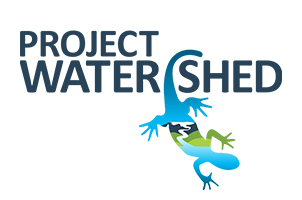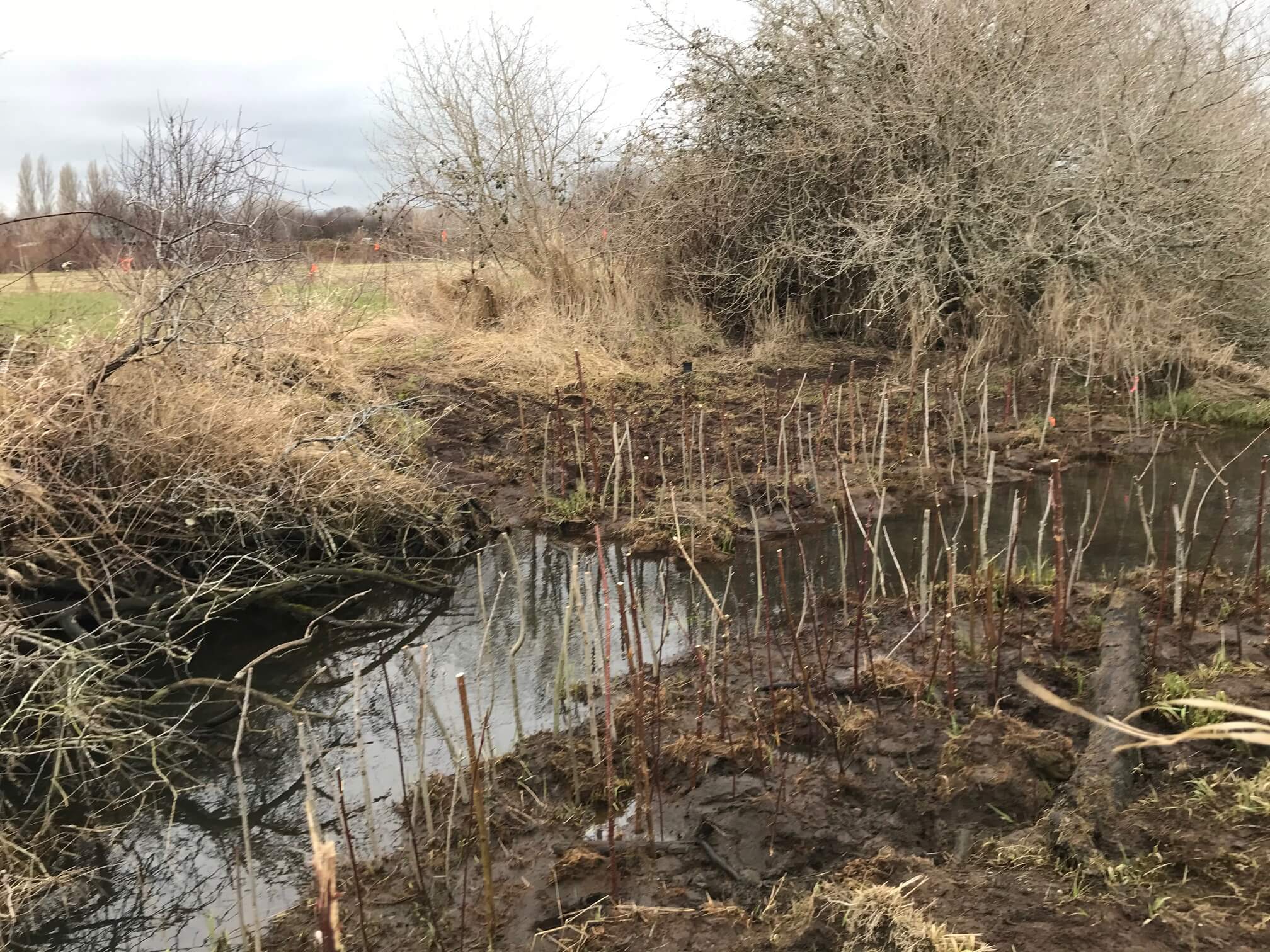Project Watershed Continues Restoration Work Along Mallard Creek
Back in February, Project Watershed and volunteers from Aecon Water Infrastructure Inc. planted over 100 native species along a section of Mallard Creek. The area has been infested with invasive reed canary grass, and Project Watershed has been working hard to restore the area and improve the habitat for fish and wildlife. Reed Canary Grass (RCG) out-competes other native vegetation due to its effective dispersal mechanisms and ability to shade out slower growing native species. Since 2004, it is estimated that the amount of RCG in the K’ómoks Estuary has tripled. RCG provides little value for native wildlife and insects, few species will eat it, and it grows too thickly for mammals or waterfowl to use for cover/nesting. Foraging juvenile salmon and trout have feeding opportunities reduced in areas dominated by RCG, and it constricts waterways thus preventing salmon from reaching spawning habitats. Planting native species provides the opportunity to shade out the RCG and prevent it from growing. The shade also helps keep stream water temperatures cool, which is beneficial to species that utilize the stream habitat.
The plants were generously donated by our supporters. We received a donation of salvaged red osier dogwood and another donation of over 100 alder, fir, salmonberry and willow saplings. This work is part of Project Watershed’s reed canary grass removal and riparian work. Thank you to Aecon volunteers and to our plant donors for your generosity and time!
Related Posts
Mallard Creek Restoration Update for 2024
Restoration work in Mallard Creek will continue this year, including invasive removal, restoring connectivity, and trial planting of a new riparian species. Volunteer events starting in September 2024.
Volunteer at Kus-kus-sum Chamber of Commerce Event
We are showing Kus-kus-sum off to businesses in the Valley through a Chamber Business to Business event. We are looking for a few volunteers to assist with this event.
Coastal Plant Monitoring
Get involved with our new vegetation community science monitoring program!
Spring Field Trips
Throughout May and June Project Watershed will be taking elementary school classes out on field trips to learn about estuary and coastal ecology and to assist with planting and plant maintenance.
Working Together to Identify Forage Fish Spawning Beaches
This year marks the 5th year of a partnership between Comox Valley Project Watershed Society and North Island College on a long-term study to examine intertidal spawning habitats of forage fish in the northern Salish Sea.
Glen Urquhart Update – Spring 2024
Latest news from Glen Urquhart restoration progress for spring 2024.



